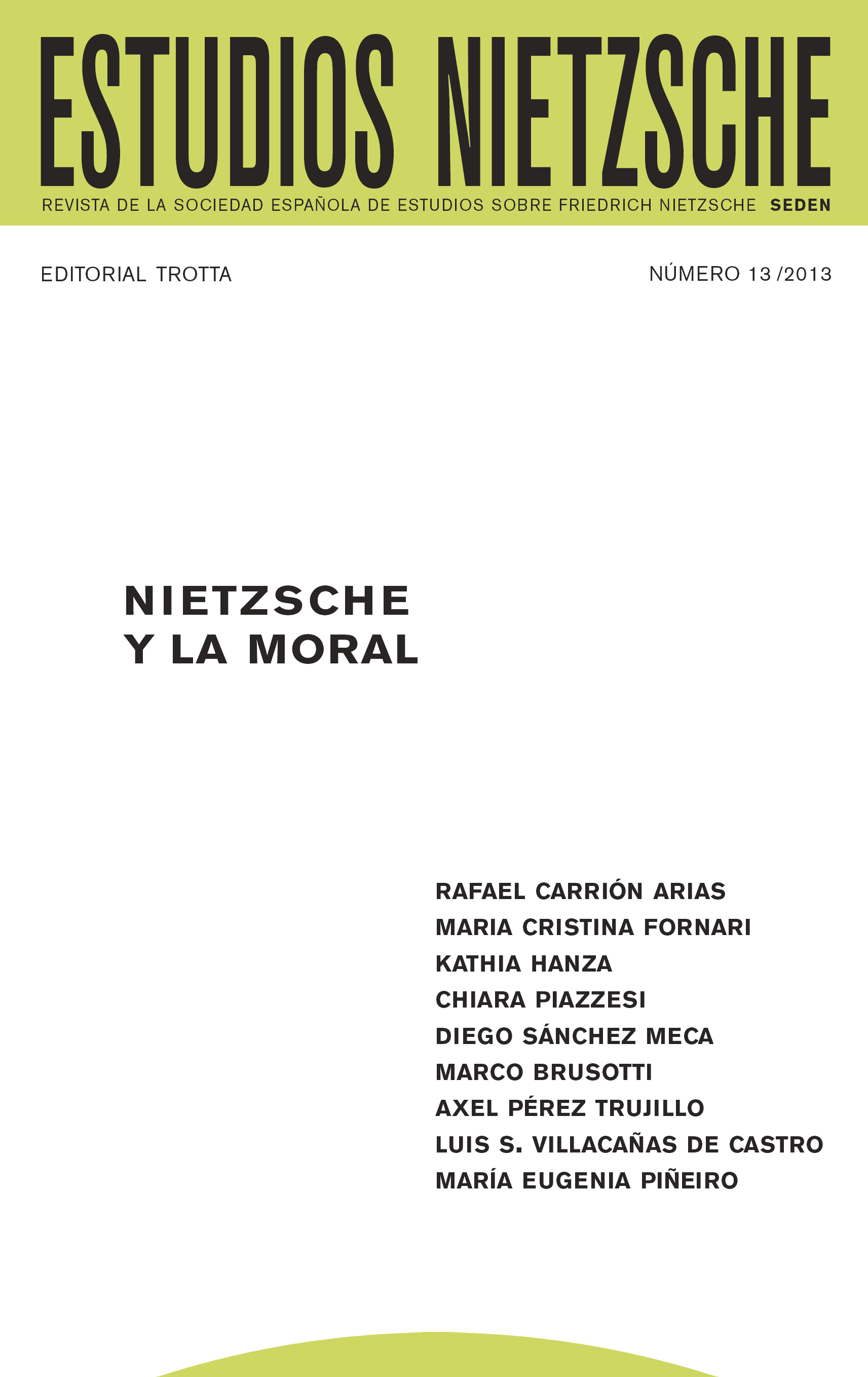The Eternal Recurrence in Borges, Blanqui, Whitman: Returns of Philosophy from Nietzsche
DOI:
https://doi.org/10.24310/EstudiosNIETen.vi13.10703Keywords:
eternal return, metaphysics, repetition, memory, infinityAbstract
As Nietzsche, Jorge Luis Borges sensed that eternal recurrence should somewhat relate to eternity. In his version, it is not the subject who ended up being eternal, but only the instant that returns. In contrast with Borges and Nietzsche’s eternal recurrence, this essay tries to show that we can find a thorough and comprehensive metaphysics in Auguste Blanqui’s version, which was elaborated in the nineteenth century. Finally, we will maintain that Walt Whitman’s work should be understood from Blanqui’s scheme too, and not
(as Borges does) from what Whitman has in common with Nietzsche’s philosophy.
Downloads
Metrics
References
Badiou, A., Deleuze. The Clamor of Being, trad. de L. Burchill, Minneapolis/Londres: Minnesota University Press, 2000.
Borges, J.L., «El otro Whitman», Prosa completa I y II, volumen I, Barcelona: Bruguera, 1976.
Deleuze, G., Spinoza y el problema de la expresión, trad. de H. Vogel, Barcelona: Muchnik, 1975, pp. 23-24.
Deleuze, G., La isla desierta y otros textos. Textos y entrevistas (1953-1974), trad. de J. L. Pardo, Valencia: Pre-textos, 2005, p. 156.
Deleuze, G., Diferencia y repetición, trad. de M. S. Pelpi y H. Baccacece, Buenos Aires: Amorrortu, 2002.
Vattimo, G., El sujeto y la máscara. Nietzsche y el problema de la liberación, trad. de J. Binagui, Barcelona: Península, 1989.
Whitman, W., Democratic vistas, Collected Poetry and Collected Prose, Nueva York: The Library of America, 1982, p. 929.
Whitman, Walt, Sculley Bredley y Harold W. Blodgett (eds.), Leaves of Grass. Authoritative Texts. Prefaces. Whitman on his Art. Criticism, Nueva Cork: Norton, 1973.
Downloads
Published
How to Cite
Issue
Section
License
As of issue 21 (2021) this journal is published only in open access (diamond route).
From that number 21, like the previous numbers published in NIETZSCHE STUDIES, they are subject to the Creative Commons Acknowledgment-NoComercia-ShareIgual 4.0 license, the full text of which can be consulted at <http://creativecommons.org/licenses/by-nc-sa/4.0 >
It is the responsibility of the authors to obtain the necessary permissions of the images that are subject to copyright.
This work is licensed under a Creative Commons Attribution-NonCommercial-ShareAlike 4.0 International License.
Copyright generates two different rights: moral rights and patrimonial rights that EJFB recognizes and respects. Moral rights are those relating to the recognition of the authorship. They are rights of a personal nature that are perpetual, inalienable, unseizable and imprescriptible as consequence of the indivisible union of the author and his/her work.
Patrimonial rights are those that can be derived from the reproduction, distribution, adaptation or communication of the work, among others.







11.png)
